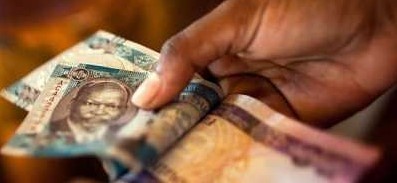The South Sudanese Pound has been steadily depreciating against the US dollar and reached a record low this afternoon, with the pound trading at 70,000 against 100 US dollar, with further expected decline.
Professor Akim Ajieth, an economic analyst, attributed the rapid fall of the pound to an announcement last Friday by government spokesman Michael Makuei that the government soon plans to introduce new currency bills to check the runaway inflation and hoarding of cash.
“When you announce that you are going to change the currency, that caused insanity in the market because people who have dollars are trying to take advantage of the situation by charging the dollar expensively to get profit out of it,” Prof. Ajieth told Radio Tamazuj.
“So the best thing that should have been done in the first place was to do it secretly and announce it in the last minute rather than announce it to create panic in the market,” he added.
Prof. Ajieth said no one among the administrators, the economists, and people with management skills is supporting the introduction of a new currency because that is not going to be the solution.
“It is going to make things even worse, the reason the pound is 70, 000 SSP to US$ 100 now is that people are panicking in the market, people are worried, people do not know what will happen in the next few days,” he said.
The economic analyst urged the government to review IMF monetary recommendations, strengthen the taxation system, and also monitor how oil revenues are being spent. “You cannot introduce a new currency while inflation is high, you are making things worse,” he added.
Martin, a black-market money trader, also reiterated that the South Sudanese Pound has been steadily depreciating against the US dollar as a result of the government’s plan to introduce a new currency.
“The US dollar has become a problem, everything increased in the market. Yesterday it was 70,000 SSP per 100 dollars and that was the buying price, while the selling price ranged from 65,000 to 68,000 SSP,” Makuei said.
“Any item that used to cost 100 SSP is now 300 SSP. People who have US dollars just estimate the rate they want. Our challenge now is that you buy dollars at expensive prices and there are no customers,” Makuei added.
Another currency trader only identified himself as Abdallah said: “The market has opened, but you can have pounds in the shop and there are no US dollars. The dollars are not enough in the market. Things have become very expensive, the civilians are not coming to buy anything in the market.”
South Sudan relies almost exclusively on oil revenues and is a net importer of manufactured goods, materials, and some food items.
The plunge of international oil prices affected the country’s revenue kitty with the government failing to pay civil servants for several months.




